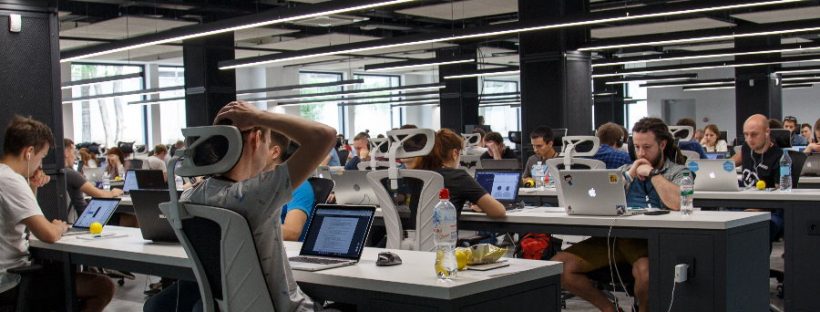It looks like COVID-19 did not disrupt the banking, financial and offshore sectors in Mauritius too much. Although the virus spread was contained in Mauritius, the economic ramifications of the global shutdown are not to be underestimated. Our aim with this article is to say what can be set-up remotely, what options there are in terms of Mauritius bank accounts and Mauritius offshore company formations, and the general procedures and processes thereof.
What can be set-up remotely in Mauritius?
Mauritian bank accounts, companies and Funds can be set up without ever having to come to Mauritius. This includes Mauritian business registration of Global Business Companies (GBCs), Authorised Companies (ACs) and Mauritian domestic companies. The same can be said for the more complex financial licences like a Payment Intermediary Services Licence (a PSP in other jurisdictions), an Investment Dealer Licence, an Investment Adviser Licence and a CIS Licence to name but a few. One can invest in property without having to come here, (although make sure you have someone trustworthy on the ground) as well as setting up an investment vehicle for purchasing the property. One can even apply for a residence permit via the EDB online portal from abroad. With internet banking the limitations of a bank account in a foreign jurisdiction are somewhat minimised.
What types of bank accounts are available in Mauritius?
The banking sector in Mauritius is sophisticated, stable and provides multi-currency accounts, internet banking and international bank cards to its many global customers. Personal offshore Mauritian bank accounts for those living abroad can be set up in a few weeks as long as KYC and compliance tests are passed. Equally Mauritian offshore bank account openings are available both Mauritian companies and foreign companies. Mauritius offshore bank accounts are actually very popular for companies incorporated elsewhere, notably in Hong Kong, Dubai and Cyprus, due to the strength of the banking sector here and the lack of exchange controls. A company that is tax resident in Mauritius such as a GBC, must have its primary bank account in Mauritius.
Which Banks are present in Mauritius?
Currently licenced by the Bank of Mauritius are the following banks: ABC, Absa (formerly Barclays), AfrAsia, Bank of Baroda, Bank of China, Bank One, Banyan Tree, BCP, Century Banking Corporation, Habib Bank, HSBC, Investec, MauBank, SBI, SBM, MCB and Warwyck. These banks differ in size, capability and offerings. There are global names, niche banks, formidable Mauritian and African competitors and an Islamic Bank.
What currency of account can I have?
One can choose any of main world currencies for a Mauritian offshore bank account. Many individuals and companies therefore have EUR, GBP, USD and MUR accounts. The internal exchange rate is competitive with most of the banks here so having multiple accounts is a significant benefit.
What needs to be provided to set up an offshore bank account in Mauritius?
Each bank has their own procedures to apply for a bank account, normally lasting for a few weeks. Expect the usual checks on individuals for their personal accounts, as there are for directors, shareholders and UBOs of companies, including certified copies of a passport and a recent utility bill. Reference letters, generally from a current bank are requested but substitute documents can normally suffice such as 6 months of current bank statements and a signed form allowing the Mauritian bank to contact the current bank.
The key focus is on the funds that will be arriving in the bank account, to show firstly where the money is coming from, and then that there is no chance that this money is in any way made from illegal activities, or that the bank account or company is going to be used to launder money. Mauritius takes its Money Laundering obligations very seriously as shown by its OECD and EU status. Expect the Business plan for any company account to be looked into in detail.
Unlike certain jurisdictions, there are no exchange-controls in Mauritius and the hard thing is to bring money into Mauritius. Once it is here, it is easy to move around and so it is a great banking jurisdiction for a trading company. For example, for any company buying goods in Asia and selling them in Africa or Europe, if a GBC is set up, then it is very easy to pay all the suppliers from Mauritian bank accounts. With 80% exemption on corporation tax, it means that there is only 3% tax on profits and no tax on dividends so this is a very popular option.
How to successfully set up an offshore Mauritius bank account?
We would break down the key elements of successfully opening bank accounts into the following sections:
- The Activity of the company or individual – For example if the activity is something that is illegal in Mauritius, such as cannabis oil, online gambling or weapons, or if it is deemed very risky such as cryptocurrency exchanges with clients predominantly from countries which makes banks nervous, then it will rarely get off the ground. Mauritian banks are still very cautious when any company activity involves cryptocurrency, even if it is licenced by the FSC in Mauritius. One can ask for dispensation from the FSC for a GBC to have a primary bank elsewhere, and there are now some banks in Mauritius that have more of an appetite for the Fintech future. A bank account opening will always be difficult in any jurisdiction with these activities.
- The Shareholders and the UBO – Expect thorough KYC checks on all parties involved, especially those owning the company or account, from World-Check to media checks. If there are potential issues such as historical media attention, then try and tackle it from the start rather than hope that no one sees it. It is much easier to set up a bank account in Mauritius if it is for a Mauritian company rather than a foreign company so bear in mind it is sometimes worth setting up a holding or trading company in order to utilise the banking sector here if you are struggling to do so with a foreign company.
- The preparation in the application – The most successful applications are those where the client’s agent in Mauritius, normally holding an EIC (Eligible Introducer Certificate), has asked in advance all of the question that the bank will ask, and therefore, the initial application is comprehensive, and the evidence preempts any concerns. Ultimately if the first two elements above are not right then there will still be an issue but there are many clients who fit into a grey area and with the right assistance then they can have a bank account setup in Mauritius.
- Picking the right bank – Some of the more popular banks can be risk-averse and some of the banks are more Fintech-friendly for example. When setting up a company in Mauritius either with a Regulatory Sandbox Licence or a PIS licence dealing with cryptocurrency for example, then you can seek guidance from the Regulatory body, the EDB or the FSC respectively, as to which bank will be more likely to open an account if it is successful with its licence application. Some of the banks have far better internet banking than others and some are far quicker for account opening.
Conclusion
Mauritius offers a stable and welcoming environment to do business. Even though the world is in COVID-19 turmoil, many clients are finding they have the opportunity to focus on things that they have been meaning to for a long time. It is clear that risk management and diversification is something that every individual and company need to consider. Whether it be a life insurance policy or a trust to protect one’s estate, an investment in property that gives a permanent residence backup for the buyer and their family or just their company or personal banking moved to a stable jurisdiction for ease or to mitigate tax, then Mauritius has something to consider for everyone.
About the Author
Philip Tsalikis is a practising UK barrister based in Mauritius and registered there as a foreign lawyer. He is the founder of TBI Mauritius, a consultancy firm based in Mauritius but with a global reach and network. TBI assists individuals and businesses with their investment, setup and operations in Mauritius, and throughout Africa.
Disclaimer
Our aim with our articles is to make them digestible. We keep them short and relevant but do not update them. They are not designed to be legally relied upon. This article contains no legal, tax or financial advice, all of which should be sought from relevant professionals.
Please contact us via our website, via email to info@tbimauritius.com or via the form below.





